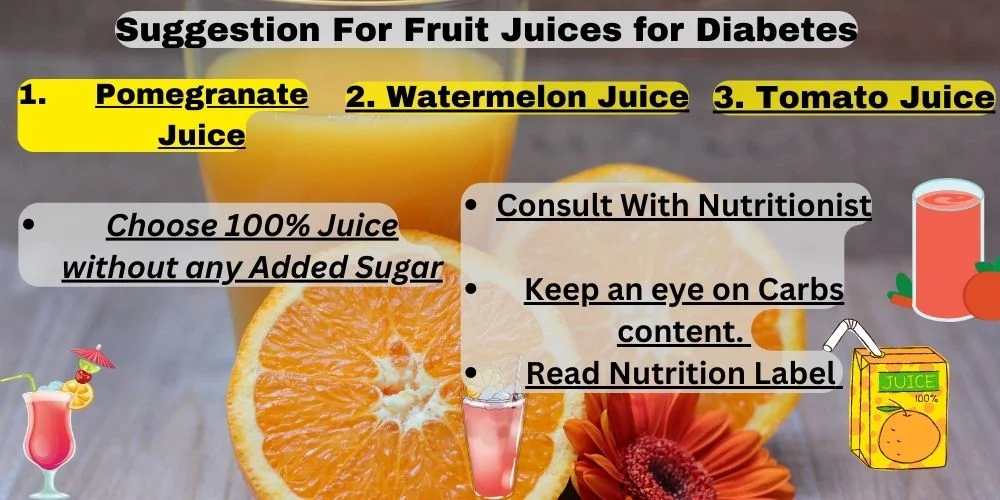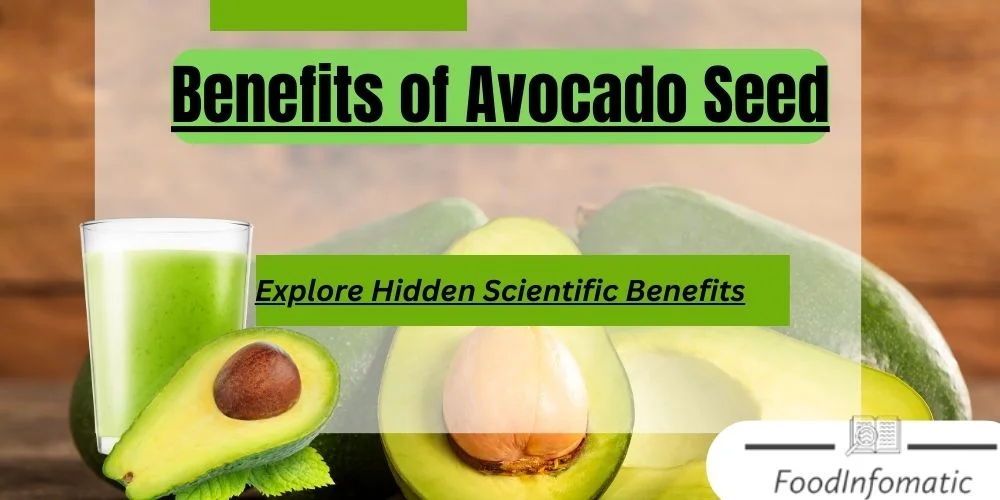Fruits are known as essential food for ingesting important nutrients. Similarly, fruit juices are an easy source of nutritional components. However, people are often confused about consuming fruit juices for diabetes as they must strictly maintain their blood sugar level.
Diabetes is one of the major issues worldwide, which is affecting millions of people. It has been estimated that diabetes resulted in 1.5 million deaths in the year 2019 (1).
There are chances that diabetic patients can consume a few fruit juices and keep their blood sugar level in check. This article will enlighten you about potential fruit juices for diabetic people and essential points to consider in this regard.
Do fruit juices affect blood sugar levels?
Yes, many fruits have high sugar content and contain high calories, which can increase your blood sugar level and hyperglycemia.
But, not all fruit juices will enhance the sugar level. To understand this, we must dig into the concept of the Glycemic index, which indicates the carbohydrates or sugar level in foods. The glycemic index shows how carbohydrates in a specific food will affect the blood sugar level.
In general, foods with a lower glycemic index (less than 55) should be the preferred choice of a diabetic patient (2).
It must be noted that if you are consuming 100% fruit juices, the risk of diabetes might be lower. Scientific studies showed that there might not exist any risk of increased type 2 diabetes due to the consumption of 100% fruit or vegetable juices (3).
Still, the consumption of some sugar-loaded fruit juices can increase the blood sugar level. For instance, orange juices have a glycemic score of 66-76 (out of 100), making them a high glycemic index food, which is better avoided by diabetic people under certain conditions (4).
Specifically, the juices available in the market can have a significant amount of added sugar, which can result in hyperglycemia. Such drinks or juices can be dangerous for people with diabetes.
Potential fruit juices for diabetes
Not all fruits are created equally, and the same goes for their juices. So, there are some fruit juices with a low glycemic index that can be consumed by diabetics. We have listed a few of the best fruits for diabetic people.
Pomegranate Juice: Is it good for diabetes?
Pomegranate juice is one of the best options for diabetic patients. This is due to its low glycemic index (18 GI), which tells us that this juice is perfect for maintaining blood sugar levels.
In addition, pomegranate juice is known as a good source of vitamin C, folate, potassium, and fiber. It also contains Vitamin E, K, and magnesium (5). The antioxidant content in pomegranate can assist in reducing the risk of cell damage (cancer).
Nutritionally, 100 grams of pomegranate juice contain (6):
- Calories: 54
- Total Fat: 0.3 grams
- Potassium: 214 grams (6% of daily value)
- Total Carbohydrates: 13 grams
- Dietary fiber: 0.1 grams
- Vitamin C: 0.1 mg
Interestingly, scientific studies showed that pomegranate juice has antioxidant fractions and contains components that can possess anti-diabetic activity (7). Thus, pomegranate juice can be a delicious and nutritious addition to a diabetes management plan.
Watermelon Juice for diabetic people: Is it a good choice?
Watermelon is a refreshing and nutritious fruit that is enjoyed worldwide during the summer season. Watermelon juice has a low GI, which means it can’t result in a significant rise in blood sugar levels.
100 mL of freshly squeezed watermelon juice contains about:
- Protein: 0.42 grams
- Fiber: 0.4 grams
- Carbohydrates: 8.02 grams
- Energy: 38 Kcal
- Calcium: 8 mg
- Potassium: 312 mg
- Vitamin C: 10.1 mg (8).
Watermelon juice is a rich source of antioxidants and helps in the reduction of type 2 diabetes-related complications. It also helps in improving immune systems, metabolism, and diabetic management (9).
Tomato Juice for people with diabetes
Traditionally, tomatoes are widely used in various cuisines. It is a source of important nutrients and has a low glycemic index. This makes tomato juice an excellent choice for people with diabetes. Content in tomato juice is known to reduce the blood clot risk.
The nutrient in tomato makes it ideal for reducing diabetic-induced oxidative stress, inflammation, accelerated atherosclerosis as well as tissue damage (10).
According to USDA data, 100 mL of tomato juice contain about:
- Energy: 21 Kcal
- Protein: 0.42 grams
- Carbohydrates: 4.17 grams
- Fiber: 0.4 grams
- Potassium: 242 mg
- Sodium: 283 mg
- Vitamin C: 32.5 mg
- Vitamin A: 417 IU (11) .
Can diabetics drink orange juice?
Generally, there are misconceptions regarding orange juice for diabetes patients. Actually, raw oranges can be consumed and have a low glycemic index, while their juice form contains lower fiber with a relatively higher glycemic index.
However, the orange types, such as mosambi juice, have higher vitamin and mineral contents which are essential for the human body.
Thus, people with diabetes can consider orange juice for very moderate use. It is recommended that people should limit their orange juice intake. Instead, they can consume oranges as whole fruit.
In addition, orange juices are beneficial for improving conditions like hypoglycemia, which is a condition where the blood sugar level goes too low. Just consumption of 120 mL of orange juice can be helpful in bringing blood sugar levels back to normal (12).
1 cup (248 g) of orange juice contains about:
- Energy: 112 Kcal
- Protein: 1.7 grams
- Carbohydrates: 25.8 grams
- Fiber: 0.496 grams
- Potassium: 496 mg
- Vitamin C: 124 mg
- Calcium 27.3 mg (13)
Remember, it is not recommended to consume juices with added sugars.
More drinks and juice options for diabetes
Other than fruit juices, there are many low-sugar or low-calorie drinks for people with diabetes. Among them, water is the best choice for hydration as it does not raise your blood sugar level.
Moreover, herbal tea options contain low calories, free of carbs and sugar. Herbal tea also contains beneficial polyphenols, which help normal body functioning (14). Examples of herbal tea include chamomile, ginger, hibiscus, and peppermint tea.
Research studies have also shown that unsweetened coffee might be linked to reducing the risk of type 2 diabetes by improving sugar metabolism (15). However, adding additional dairy ingredients like milk and cream to coffee can increase the calorie level.
If you are worried due to fruit juices and don’t want to consume any of them due to sugar levels (even at lower concentrations), then you can try 100% vegetable juices. Most vegetable juices have a very low glycemic index. Juices of celery, cucumber, carrot, leafy vegetables, and even a blend of different vegetable juices can be helpful in managing your diabetes with a plentiful supply of vitamins and minerals.
Green smoothies made of vegetables like spinach, celery, and kale, along with protein powder, can also be a healthy choice for the diet of diabetic patients. Moreover, sugar-free lemonade made out of freshly squeezed lemons can serve as a low-carb beverage.
People can also drink low-fat milk and milk alternative (i.e., soya, oat) to take in important nutrients. Be aware of the carbohydrate content and carefully check the packaging before consuming such beverages.
Fresh fruit vs. Fruit Juice: the preferred choice for diabetic people?
Although there are various low-glycemic fruit juices available. However, one should always prefer to consume the whole fruit.
It is known that whole fruit contains high fiber content. Soluble fiber has the ability to improve the digestive system and reduce the rate of rise in blood sugar levels. But, when the fruit is squeezed to form juice, most of the fiber content is lost. Moreover, the concentrated form of sugar in whole fruit is less than in juice. Therefore, whole fruit is more advantageous for diabetic management compared to fruit juice.
Still, high-sugar fruits must be consumed with caution.
Important Precautions (Sweetened vs. Unsweetened Juice)
Fruit juices are important as sources of important vitamins and minerals. 100% fruit juices can be consumed in moderation. Although all fruit juices add carbohydrates to your diet, most fruit juices in markets are available with added sugars, which can increase the risk of high blood sugar levels. This can also increase the risk of weight gain.
Therefore, if you are addicted to fruit juices, always prefer to consume 100% fruit juices with no added sugars. Always read the nutritional facts label before buying the fruit juices.
The Bottomline
Fruits juices are a great source of essential nutrients, but people with diabetes must consume them with caution. There are various fruit juices for diabetes patients with low glycemic index, such as pomegranate and watermelon juice. These juices won’t raise much of your blood sugar level. However, it must be noted that fruit juices must be consumed in moderation. It is better to prefer 100% fruit juices without added sugar. Always read the nutrition label before buying one. Moreover, people with diabetes should choose to eat fruits as a whole.
Remember to consult with your nutritionist to include healthy fruit juices in your diet and control your diabetes.




